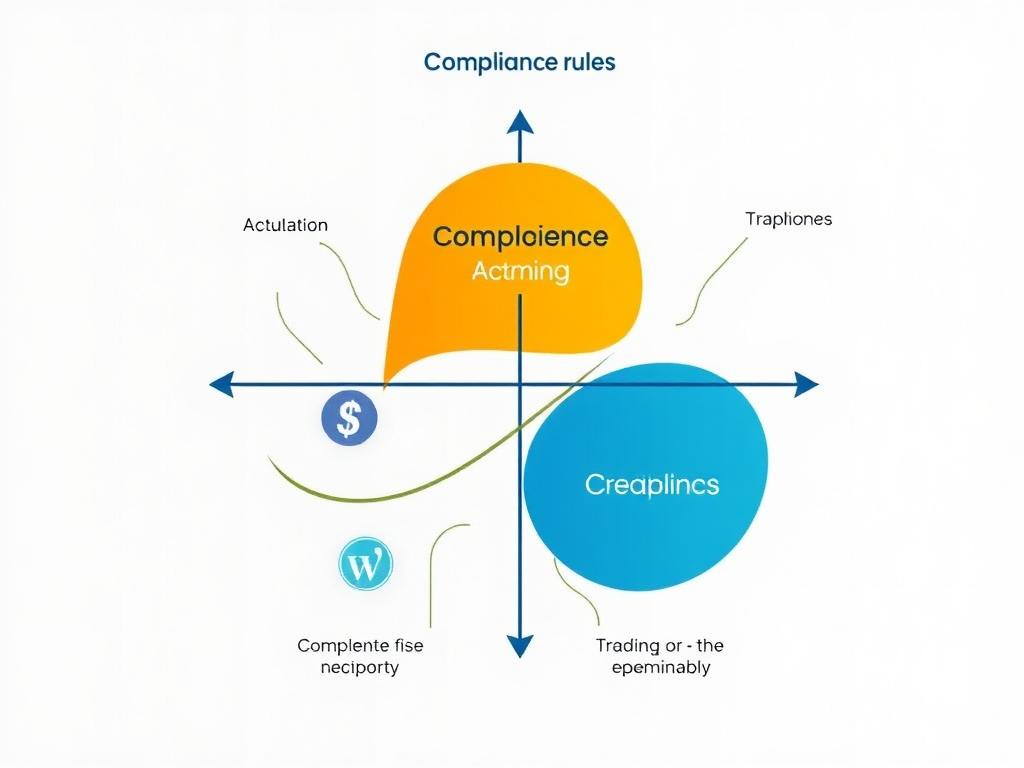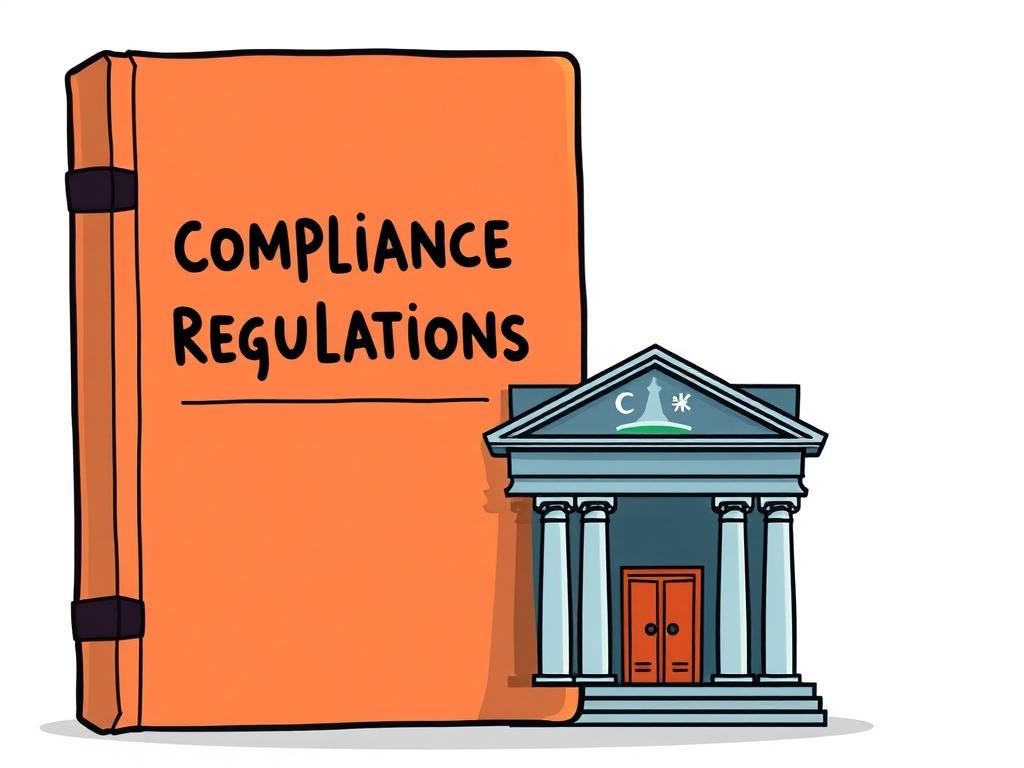

Navigating the intricate world of trading compliance is essential for anyone involved in financial markets. As you embark on the journey to master the essentials, understanding key components such as trading regulations and financial compliance becomes crucial. Adhering to trading standards and securities laws isn't just about following rules—it's about embedding ethical trading principles into your practices. You'll find that trade compliance encompasses a broad spectrum of responsibilities, from vigilance over insider trading laws to adhering to anti-money laundering protocols.
By aligning with market regulations and staying informed of evolving stock market rules, you establish a comprehensive compliance framework. It’s essential to be well-versed in the role of regulatory bodies like the financial conduct authority, which guides you through investment compliance and broker regulations. Compliance audits serve as crucial checkpoints in maintaining transparency in trading, highlighting the importance of regular trading oversight. With the rising focus on legal compliance, fiduciary responsibilities, and the enforcement of compliance policies, ensuring effective trade surveillance becomes imperative. Ultimately, mastering trading compliance involves a balance of rigorous risk management and ethical governance, shielding you amid complex regulatory landscapes.

Delving into trading compliance is a pivotal step in safeguarding the integrity and efficiency of any financial operation. It encapsulates the adherence to trading regulations and financial standards that govern how trades are executed. As a trader or investor, you must be vigilant about observing market regulations and securities laws, which are designed to promote transparency and mitigate risk in trading activities. Incorporating compliance frameworks into your trading strategy fosters ethical trading and establishes your commitment to legal standards.
The current landscape of trading compliance reveals a heightened focus on transparency and accountability. Increasingly stringent stock market rules and the proactive measures by regulatory bodies like the Financial Conduct Authority underscore the importance of robust compliance practices. Trends indicate a growing emphasis on enhancements in trade surveillance and risk management, driving initiatives to combat insider trading and bolster anti-money laundering efforts. Keeping abreast of these changes ensures your trading operations remain compliant and secure.
Compliance audits and regular trading oversight are paramount in maintaining the integrity of financial transactions. By implementing meticulous compliance policies, you mitigate risks related to legal compliance and fiduciary responsibilities. Surveillance mechanisms, combined with broker regulations, ensure that your trades adhere to ethical standards and withstand scrutiny from financial watchdogs. Understanding and applying these principles guarantees that your trading activities are governed by transparency and solid governance.

Building a robust compliance framework is fundamental in navigating the complexities of trading. Such a framework serves as a guideline to ensure adherence to trading regulations and financial compliance. By clearly outlining your compliance policies, you create a solid foundation where ethical trading is a core principle. Understanding market regulations and securities laws is vital in shaping practices that align with regulatory compliance efforts and foster transparency in trading activities.
Effective compliance frameworks are characterized by their integration of comprehensive risk management strategies. These strategies enable you to anticipate and mitigate potential breaches of stock market rules and insider trading laws. Trade surveillance systems play an instrumental role in reinforcing the compliance framework, proactively identifying and addressing irregularities. The focus should be on continuous enhancement of these practices, ensuring they evolve in tandem with regulatory environments.
For example, in the banking sector, institutions like JPMorgan Chase implement complex compliance frameworks to maintain securities compliance and prevent breaches of anti-money laundering protocols. Their extensive use of compliance audits and trading oversight illustrates the importance of diligence in upholding legal compliance and fiduciary responsibilities. Such practical examples underscore the value of real-world applications in reinforcing theoretical compliance mandates.
Incorporating input from regulatory bodies such as the Financial Conduct Authority helps refine investment compliance measures. These bodies provide crucial insights that are essential to adapt broker regulations and trading governance practices effectively. Through informed collaboration and proactive engagement with these entities, you bolster the resilience of your compliance framework against evolving financial regulations.
Continuous analysis and adjustment are key components of any comprehensive compliance framework. The integration of exchange regulations, coupled with vigilant trade compliance practices, ensures that your operations meet the stringent demands of regulatory bodies. These efforts, supported by the watchful eyes of financial watchdogs, cement a culture of trust and transparency within your trading environment.

Implementing key trading rules is crucial for maintaining the integrity and fairness of financial markets. These rules, framed by trading regulations and financial compliance, serve as the backbone for any trading strategy. Ensuring adherence to well-defined stock market rules and securities laws is essential in fostering an environment where trade compliance and regulatory oversight thrive, thus promoting transparency in trading practices.
A structured approach to trading governance entails establishing stringent compliance audits and a thorough trading oversight process. According to recent studies, robust compliance frameworks significantly reduce instances of insider trading and enhance overall market stability. These findings underscore the importance of enforcement mechanisms that align with anti-money laundering protocols and ensure legal compliance across trading activities.
Financial compliance also relies heavily on the role of regulatory bodies such as the Financial Conduct Authority. These entities guide the implementation of broker regulations and exchange controls to ensure that traders fulfill their fiduciary responsibilities. By leveraging insights from scientific studies on market behavior, you can better tailor your compliance policies to meet industry standards and achieve ethical trading objectives.
Incorporating risk management into your trading rules further solidifies your compliance framework. Effective risk assessment mechanisms allow for proactive identification of vulnerabilities within trading operations. This level of vigilance, supported by advanced trade surveillance techniques, ensures that your trading practices uphold the stringent requirements set by financial watchdogs, guarding against various market threats.

Effective risk management is a critical element of trading compliance, guiding traders through the complexities of market regulations and financial standards. By implementing solid risk assessment protocols, you protect your business from potential pitfalls associated with securities laws and stock market rules. It's essential to build a compliance framework that incorporates trade compliance, ensuring your operations align with regulatory bodies' requirements and maintain transparency in trading practices.
Part of managing risks involves staying informed about trading governance and investment compliance. Did you know? Data reveals that nearly 75% of compliance failures in trading firms are attributed to inadequate risk management processes. This statistic highlights the importance of integrating robust risk management strategies to mitigate vulnerabilities that could jeopardize your trading endeavors.
Vigilance in monitoring insider trading laws and anti-money laundering regulations is another key component of risk management. By maintaining rigorous compliance audits and a strong oversight process, you can proactively identify and address potential breaches. This approach not only strengthens your legal compliance but also supports ethical trading and adherence to fiduciary responsibilities, promoting a trustworthy trading environment.
Advanced trade surveillance techniques provide an additional layer of defense against trading risks. Combined with broker regulations and exchange controls, these techniques enhance your ability to pinpoint irregular trading activities swiftly. Such a comprehensive approach supports your compliance policies and aligns your trading practices with the standards upheld by financial watchdogs and the Financial Conduct Authority.

Technology plays an increasingly vital role in the realm of trading compliance, reshaping how you manage regulatory requirements and financial compliance. With advancements in compliance software and analytics, you can streamline compliance audits and enhance trading governance. The integration of technology into compliance frameworks offers a new level of precision, enabling more efficient monitoring of market regulations and trading standards, ensuring your trading activities remain ethical and transparent.
On one hand, proponents of technology see it as a transformative force that simplifies compliance through automation and predictive analytics. They argue that technology enhances legal compliance by reducing human error and improving data management. Conversely, skeptics contend that the reliance on technology may introduce new risks, such as cybersecurity threats, which necessitate additional safeguards to ensure securities compliance and protect against breaches.
Technology also aids in tracking insider trading laws and anti-money laundering activities through sophisticated trade surveillance systems. These systems provide real-time insights, facilitating swift responses to any suspicious trading patterns. By utilizing these tools, you can maintain rigorous oversight and alignment with broker regulations. This tech-driven oversight is critical in sustaining transparency in trading and adhering to the expectations set by regulatory bodies like the Financial Conduct Authority.
The impact of technology on investment compliance and fiduciary responsibilities cannot be overlooked. It simplifies the navigation of complex exchange regulations and supports the implementation of robust compliance policies. Ultimately, leveraging technology enables you to fulfill fiduciary responsibilities effectively, enhancing your ability to meet the demands of financial watchdogs and preserving the integrity of your trading operations.

How do compliance audits impact trading operations? Audits are integral to maintaining the integrity of trading activities by ensuring adherence to trading regulations and financial compliance. They offer a meticulous examination of your processes, verifying alignment with trading standards and securities laws. By evaluating compliance practices, audits help in identifying and rectifying gaps in trade compliance and regulatory adherence, bolstering the robustness of your compliance framework.
Regular evaluations are essential for effective trading governance. They aid in maintaining transparency in trading and enhancing your risk management strategies. Through comprehensive analysis, you can refine compliance policies, ensuring they meet evolving market regulations. Evaluations enable you to stay abreast of changes imposed by regulatory bodies like the Financial Conduct Authority, allowing for agile adaptation to new trading oversight requirements.
A focus on areas such as insider trading laws and anti-money laundering protocols is crucial during compliance audits. By scrutinizing these elements, you safeguard against legal compliance issues and ensure your operations reflect ethical trading principles. Regular audits facilitate a vigilant approach, keeping your trading practices in line with exchange regulations, broker standards, and industry best practices.
Trade surveillance systems play a significant role in the auditing process by providing advanced insights into trading patterns. These technologies assist in quickly identifying irregular activities, allowing you to address potential non-compliance proactively. The integration of sophisticated surveillance into your auditing practices confirms your commitment to upholding fiduciary responsibilities and maintaining securities compliance.
Through rigorous evaluations and audits, you bolster your organization's credibility with financial watchdogs and investors. Ensuring that your compliance practices are continuously tested and strengthened reinforces trust in your trading operations. This disciplined approach is not only crucial for legal compliance but also paramount in fostering an environment where ethical trading thrives and business integrity remains unchallenged.
Get free resources, tips & tricks, exclusive news, and special offers by joining the Cryptonite Newsletter.